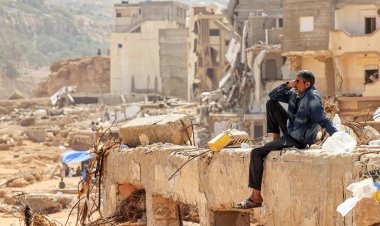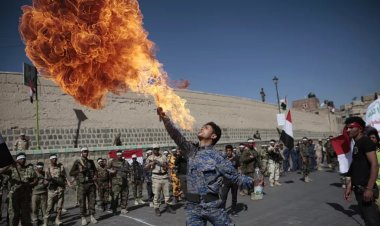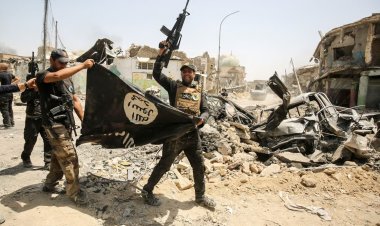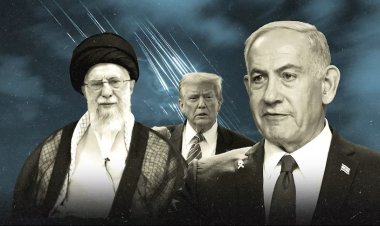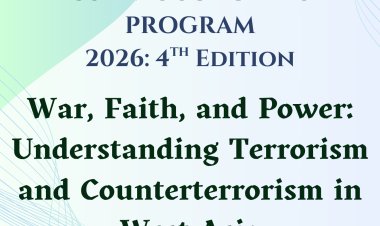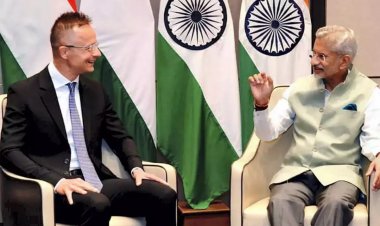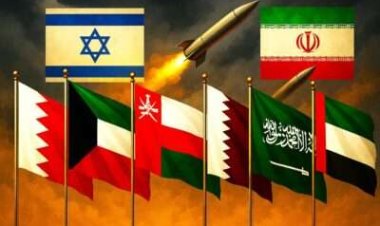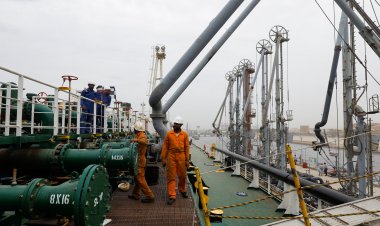The Middle East Isn’t “Changing”; It Already Has: How the Region Entered its’ New Era and What It Means for the Future
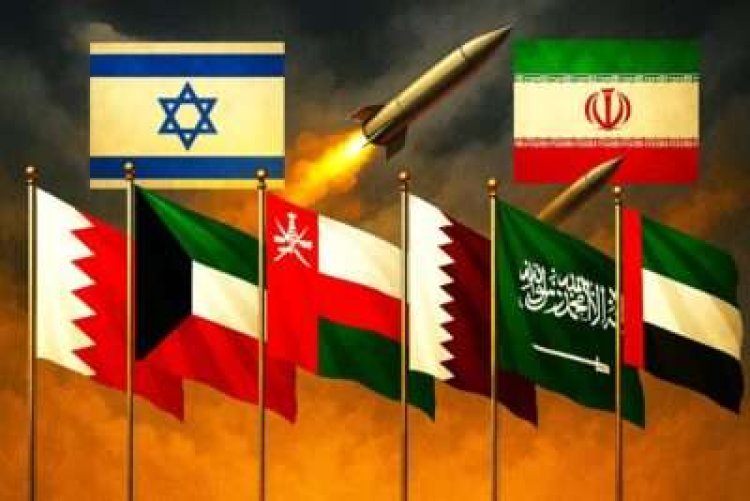
Analysis
By Arman Karamian
For years, we have come across - and still do - a headline or an article with the title "A New Era for the Middle East?", "The Middle East is Changing", or something along those lines every time a deal is struck or an altercation occurs in the region. The truth is, the Middle East already has changed, and the latest developments are not only testaments to that, but also cementers of that reality.
Indeed, there was no, nor will there be, any raising of a flag or symbolic announcement meant to signify the entry into this long talked about "new era".
So how has the Middle East already changed? There are several indicators:
The Iranian Posture:
The most significant is the realignment of how Iran has conducted its' foreign policy. They have shifted gears from the years-old defensive-realist approach to something more similar to offensive realism. This is because it cannot afford to operate in the capacity offered through its extensions in Syria, Lebanon, and Yemen anymore. For context, a defensive realist- oriented foreign policy would opt for avoiding direct confrontations and prefer cooperation to safeguard security and state interests, as was Iran's modus operandi for years, one that defined years of the structural dynamic of the Middle East. The evolution of their foreign policy is most clear through several key points:
First, Iran leveraged the protraction of its' direct confrontation with Israel instead of attempting to douse the fires through limited responses like last year. Second, the Iranian parliament voted to suspend its cooperation with the UN-led IAEA, meant to regulate the safe use of nuclear technologies, breaking with years of adhering to one of the more delicate international institutions of the rules-based world order. Perhaps even more bold and fateful was its' vote to block the Strait of Hormuz, a narrow shipping lane that sees the exportation of 20% of the world's oil, sure to agitate the Gulf countries. While this isn’t to say that Iran will absolutely no longer engage in negotiations, as the US is attempting right now with Iran, precedent has been broken. With the loss of the potency of its extensions in the region (and guarantors of security for its power from a structural realist perspective), it explains why Iran has acted in a more confrontational capacity. Furthermore, it reflects how a decades-old dynamic that characterized the Middle East has reached a transformational phase.
Regime Change in Syria:
The above is, in part, a result of the still-significant regime change that took place in Syria. The half-century-old Assad regime witnessed its toppling in December 2024 after the surprise offensives led by HTS (Hay'at Tahrir el Sham), a Turkish-backed opposition group, starting late November. This changed the internal dynamic of minority-led rule by the Alawite family from the 70s. It ultimately transferred the lion's share of power to the Sunni-majority groups that led the charge against the previously secular rulers. This weakened Iran's capacity to act extensively in the region, first and foremost by losing one of its primary allies, the Assads, and in losing its direct pathway in maintaining a connection with groups in Lebanon like Hezbollah and various Palestinian elements. Most importantly, it is how Syria's foreign policy went from a traditionally adversarial stance on Israel to being significantly defensive-realist in stature. This is how Syria has transformed, particularly and radically ("radically" being a term used to describe the relative extent of change):
First, what was once a solid part of the resistance axis in the region, Syria, now finds itself under the possible eventuality of normalized relations with Israel under the considerations of the Al-Sharaa administration. This comes in stark contrast with Syria's hostile position in the past under the Assads. While the family did have its fair share of back-channel communications with the Israelis for strategic purposes, President Al-Sharaa has signalled the potential for normalization with them, granted that the appropriate climate was there. In addition, Al-Sharaa has undone the secular form of rule known in the past by stipulating in Syria's temporary constitution that its head-of-state be a Muslim and that the law in the country adhere to Islamic jurisprudence. Syria's near-unprecedented transformation has undoubtedly played a part in altering how the makeup of the Middle East will be thought of in the years to come.
Lebanon’s New Government (and Foreign Policy):
Lebanon, too, was considered part of this axis on account of Hezbollah's presence on the border with the Israelis to their south since even before the 2000s. However, after an IDF bombing campaign in September 2024 that left chunks of the capital, Beirut, and segments of South Lebanon in ruins in a bid to weaken the resistance group, the potency for action from Lebanese soil decreased. What ensued from the aftermath was a carefully worked-around attempt to alter Lebanon's regional foreign policy by both the West and local politicians and groups sympathetic to the West. With an uneasy ceasefire in November, efforts to elect a president for the country intensified, particularly of a neutral nature in relation to regional conflicts. In January 2025, parliament elected the candidate favored by both the US and large swaths of the local populace, army commander Joseph Aoun. A month later, the new government was formed, with the solidifying of a foreign policy based on non-alignment with the resistance axis in the region, unprecedented since 1992. As a result, the shift for the small yet significant country has undoubtedly broken precedents that defined part of the Middle East's political arrangement for two decades.
The Abraham Accords:
There are other indicators that the region has already entered a "new era" and is only reeling in from the effects, one of them being the Abraham Accords initiative, spearheaded by President Trump during his first term in 2020. It was the first time Arab states agreed to normalization with Israel in 26 years, the last such occurrence being Jordan's peace treaty with them in 1994. The continuity of this new era is reflected in the fact that there seems to be some optimism on the part of the Americans over the expansion of the accords in the near future.
Conclusion: How Today Will Shape Tomorrow in Similar Ways
At the current rate, the new era in which the Middle East has already entered could be further consolidated with several developments that have reasonable probabilities in occurring as we build on what has already transpired:
The first is the potential for Iran to back out of more international agreements like the NPT (Treaty on the Non-Proliferation of Nuclear Weapons) and officially scrap its signatory status in the JCPOA (Joint Comprehensive Plan of Action), also known as the Iran nuclear deal. This, along with its moves on the Hormuz Strait and the IAEA, risks further alienating Tehran from the rest of the region. Against the backdrop of the latest developments and the currently delicate de-escalation, Iran may realistically feel inclined to make the most out of President Trump’s proposed talks with them for stability and avoid excluding itself from the international community. There is also probable cause in believing that Syria is next in line to join the Abraham Accords. President Al-Sharaa has already made clear that it is not his desire to scoff at the Israelis, a sentiment alone that carries weight in the Arab world. In the past, this would have warranted a collective treatment of alienization on the part of other Arab states, like with Egypt after their peace deal with Israel in 1979. However, with the current climate, it seems Syria’s ascension might do more to encourage others than to enrage, as far as state governments go. All this has the potential to cultivate enhanced peace in the region on paper but leaves the Palestinians and their desire for a state in a dangerously uncertain spot. This is because neglecting this major element in the region may risk repeating past mistakes that led to instances like the October 7 attack by Hamas, leading to the destabilization of the region and implications for the security of many. Some states, most prominently Saudi Arabia, say no to normalization but seem to be inching closer to doing away with cold hostilities through the accords regardless.
Whatever the developments may be, they will be extensions and solidifiers of the current dynamic, a Middle East that already saw its current geopolitical fault lines shaping up since the early 2020s and which will undoubtedly set the stage for the pre-text of the next “era” for the region.
Disclaimer: This paper is the author's individual scholastic contribution and does not necessarily reflect the organization's viewpoint.
Arman Karamian is a political science graduate interested in international relations, geopolitics, security studies, & public policy. He is currently pursuing an M.A. in political studies at the American University of Beirut.

